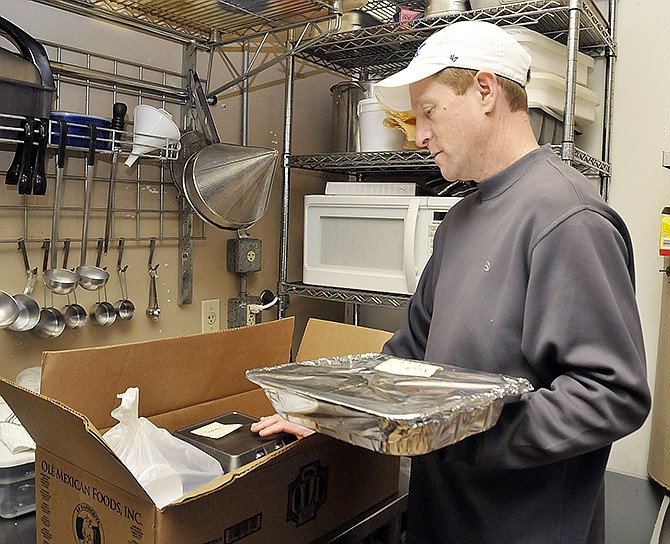Jokingly called a "company town" with state government carting the payroll, Jefferson City undoubtedly benefits from government-related business. So when a frequent business opportunity at the Capitol disappeared almost two weeks ago, local entrepreneurs noticed.
Missouri House Speaker John Diehl banned state representatives from accepting meals, usually catered and paid for by lobbyists, during committee hearings as of Feb. 3. The ban is not an official change to House rules, but Diehl was confident committee chairmen would back his decision amid an ethics push among the Legislature.
For the many in Jefferson City's food industry who prepare the meals, Capitol catering is big business.
"Toward the end of the year during the holiday season nobody's having meetings, and at the Capitol of course they're not in. Then all of a sudden, it all hits at one time. Everybody gets their meetings started back up, and the Capitol's in session," said Audrey Kauffman, who owned Cafe Via Roma until last November.
She has remained a consultant for the restaurant's new owner, Central Missouri Community Action.
"We cater to a lot of those committee hearing meetings, especially the early-morning ones," she said. "Our reputation for being timely and having the right kind of mix of healthy, easy-to-eat foods went over really well."
Kauffman estimated between 60-70 percent of Cafe Via Roma's overall catering business during the annual legislative session is Capitol-related, and about 40 percent of that Capitol catering is to committee hearing meetings. The cafe and caterer, located just across from the Capitol on West High Street, reported lower sales this January than in January 2014.
"We are taking less coffee over there, and we've had a change of leadership (in the Legislature). Every time new people come in you've got to get in front of new people and so forth, so there's probably a number a different reasons why that happened - but the committee hearings are part of it," Kauffman said.
Across town, the fledgling catering business at Oscar's Classic Diner has already taken several cancellations due to the change. The restaurant expanded its kitchen after a 2013 fire, allowing the restaurant to more proactively seek catering business.
"Last year we averaged about three to four catering events per week (at the Capitol) during the legislative session. These were mostly for committee meetings but also included other Capitol functions," said Oscar's owner Kurt Mankin. "Any business loss is a big deal to me because Oscar's supports many families in this community."
Not all caterers see the committee hearing ban as a significant loss, though.
"Does it directly affect me? Yes and no. My numbers definitely go up during the legislative session, but the majority of it actually comes from, say, a chamber from another town coming up and putting a meal on in the Rotunda," said Ryan Davis, owner of Argyle Catering. "I'm not overly concerned about it. Yes, I've had some stuff cut, and obviously I don't want that to be. But I've gone through this with state budget cuts before. Since this has been going on, I've actually had more people cancel due to limited budgets than I have about the lobbyists."
Local caterers are split on how they think catering at the Capitol will be going forward.
"I've seen this happen in the past - I've been in the business going on 10 years," Davis said. "It will eventually get swept under the rug and go back to the same way it was before."
Mankin and Kauffman are interested in a compromise between ethics concerns and practicality.
"I believe that in most areas of life, it is best to find balance. There surely is a fair way to balance the needs of all parties, while still addressing the concerns that have been raised," Mankin said.
"Sometimes we've done huge breakfasts for 400. When they do that, they're inviting everybody. It's really not a focused group; it's just getting in front of the legislators and helping them to know who they are. I foresee those continuing to happen. In fact, we have a couple in the books right now," Kauffman said.
"Everyone I've talked to, as a citizen, they will say they don't mind if there is a reasonable amount spent on (legislators) eating because they go out of session, into committee hearing meetings, into session and then meetings. ... Maybe they should set a limit of $12-15 maximum per legislator; that means you're going to get a decent but not over-the-top meal so that they can continue working."

